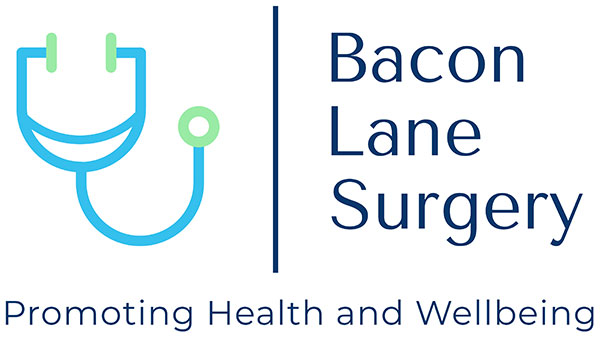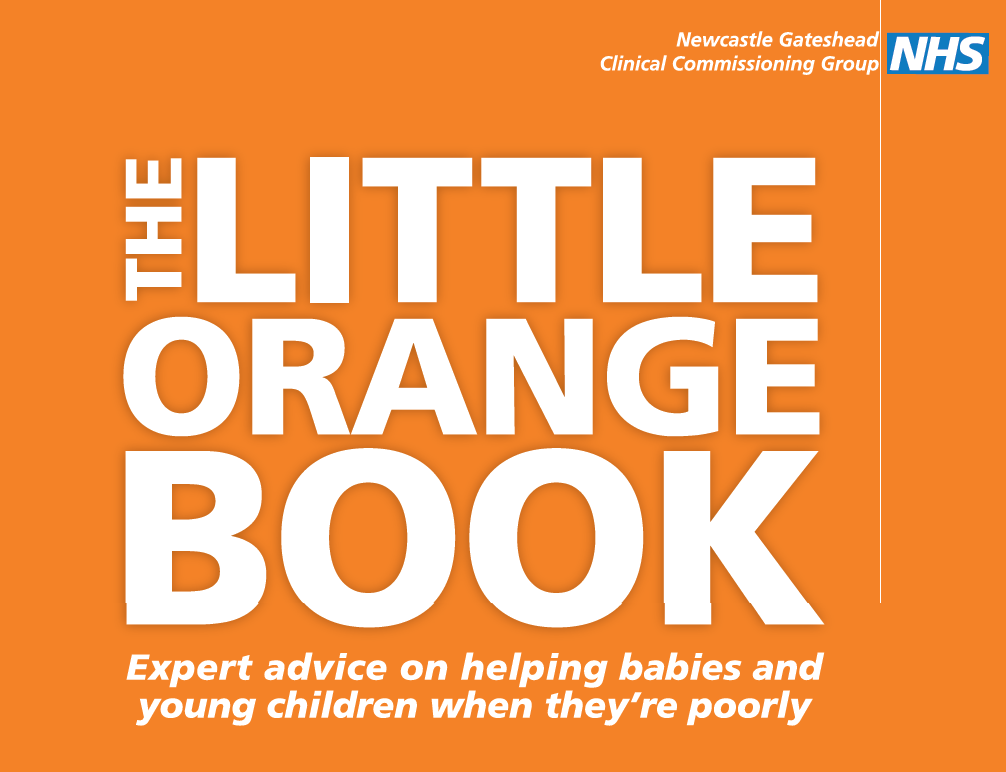If you are unwell and cannot wait until we are next open, please call 111.
Health Fair 9th July 2024 4/7/24 – It’s election day! Don’t forget to vote. Polls are open until 10pm Junior Doctor Industrial Action 27/6/24-2/7/24 Harrow Citizens’ Health Forum to Focus on Cancer Screening Services Update – MMR Messaging from NHSE Flu Vaccinations – Walk in Harrow Health Walks Directory Changes to GP Appointments on Evenings and Weekends Zero Tolerance to Abuse Register your Covid-19 Vaccine if given overseas
General Data Protection Regulation (GDPR) and Privacy Policies
What is GDPR?
General Data Protection Regulations (GDPR) is a piece of legislation that superseded the Data Protection Act 1998 on Friday 25th May 2018 and covers anywhere in the world in which data about EU Citizens is processed.
GDPR is similar to the Data Protection Act (DPA) 1998, which the practice already complies with, but strengthens many of the DPA’s principles. The main changes are:
- Practices must comply with subject access requests.
- Where we need your consent to process data, this consent must be freely given, specific, informed and unambiguous.
- There are new, special protections for patient data.
- The Information Commissioner’s Office must be notified within 72 hours of a data breach.
- Higher fines for data breaches – up to 20 million euros.
What does this mean for you?
The GDPR sets out the key principles about processing personal data for staff and patients;
- Data must be processed lawfully, fairly and transparently.
- It must be collected for specific, explicit and legitimate purposes.
- It must be limited to what is necessary for the purposes for which it is processed.
- The information must be accurate and kept up to date.
- Data must be held securely.
- It can only be retained for as long as is necessary for the reasons it was collected.
There are also stronger rights for patients regarding the information that practices hold about them. These include;
- Being informed about how their data is used.
- Patients to have access to their own data.
- Patients can ask to have incorrect information changed.
- Restrict how their data is used.
- Move their patient data from one health organisation to another.
- The right to object their patient information being processed (in certain circumstances).
We will use your data to:
- Book/cancel appointments
- Appointment reminders
- Direct contact to discuss treatment and appointments
- Referrals to hospitals/specialists with your consent
What is ‘Patient Data’?
Patient data is information that relates to a single person, such as his/her diagnosis, name, age, earlier medical history etc.
What is ‘Consent’?
Consent is permission from a patient and is defined as “any freely given specific and informed indication of their wishes by which the data subject signifies their agreement to personal data relating to them being processed.”
The changes in GDPR mean that we must get explicit permission from patients when using their data in order to protect your right to privacy. We may ask you to provide consent to do certain things, like contact you or record certain information about you for your clinical records.
Individuals also have the right to withdraw their consent at any time.
More details can be found by visiting the ICO website.
How We Use Your Information
Privacy Notice
This Privacy Notice (or ‘Fair Processing Notice’) explains why we as a Practice collect information about our patients, what information we collect and how we use that information.
Recently the Data Protection Act 1998 was updated to the Data Protection Act 2018 and joined by new regulations on data protection and fair processing called the General Data Protection Regulation (GDPR) which came into effect on 25th May 2018.
This GP Practice (we) manages patient information in accordance with existing laws and with guidance from organisations that govern the provision of healthcare in England such as the Department of Health and the General Medical Council.
We are committed to protecting your privacy and will only use information collected lawfully in accordance with:
- Data Protection Act 1998
- Human Rights Act 1998
- Common Law Duty of Confidentiality
- Health and Social Care Act 2012
- NHS Codes of Confidentiality and Information Security
All GP surgeries in England are data controllers and data processors. Therefore, we have fair processing responsibilities under the Data Protection Act 1998/2018. In practice, this means ensuring that your personal confidential data (PCD) is handled clearly and transparently, and in a reasonably expected way. It means a practice must:
- Have legitimate reasons for the use or collection of personal data.
- Not use the data in a way that may cause adverse effects on the individuals (e.g. improper sharing of their information with 3rd parties)
- Be transparent about how you the data will be used, and give appropriate privacy notices when collecting their personal data.
- Handle personal data only as reasonably expected to do so.
- Make no unlawful use of the collected data.
How your Personal Information is Used
The Health and Social Care Act 2012 changed the way that personal confidential data is processed, therefore it is important that our patients are aware of and understand these changes, and that you have an opportunity to object and know how to do so.
The health care professionals who provide you with care maintain records about your health and any NHS treatment or care you have received (e.g. NHS Hospital Trust, GP Surgery, Walk-in clinic, etc.). These records help to provide you with the best possible healthcare. For example, a hospital consultant may write to us as your GP.
NHS health records may be processed electronically, on paper or a mixture of both; a combination of working practices and technology are used to ensure that your information is kept confidential and secure. Records held by this GP practice may include the following information:
- Details about you, such as address, carers, legal representatives, emergency contact details and next of kin etc.
- Any contact the practice has had with you, including appointments (emergency or scheduled), clinic visits, telephone calls etc.
- Notes and reports about your health
- Details about treatment and care received
- Results of investigations, such as laboratory tests, x-rays, etc.
- Relevant information from other health professionals, relatives or those who care for you
Your records are used to ensure that you receive the best possible care. The practice collects and holds data for the sole purpose of providing healthcare services to our patients and we will ensure that the information is kept confidential. However, we can disclose personal information if:
- It is required by law
- You provide consent – either implicitly or for the sake of their own care, or explicitly for other purposes
- It is justified to be in the public interest
Some of this information will be held centrally and used for statistical purposes. Where we hold data centrally, we take strict and secure measures to ensure that individual patients cannot be identified.
Information may be used for clinical audit purposes to monitor the quality of service provided, and may be held centrally and used for statistical purposes. Where we do this we ensure that patient records cannot be identified. Sometimes your information may be requested to be used for clinical research purposes – the practice will always endeavour to gain your consent before releasing the information.
Improvements in information technology are also making it possible for us to share data with other healthcare providers with the objective of providing you with better care. Patients can choose to withdraw their consent to their data being used in this way. When the practice is about to participate in any new data-sharing scheme we will make patients aware by displaying prominent notices in the surgery and on our website at least four weeks before the scheme is due to start. We will also explain clearly what you have to do to ‘opt-out’ of each new scheme.
A patient can object to their personal information being shared with other health care providers but if this limits the treatment that you can receive then the doctor will explain this to you at the time.
Mobile Telephone
If you provide us with your mobile phone number, we may use this to send you reminders about any appointments or other health screening information being carried out. This may be by telephone call or SMS text messaging. Please contact the reception if you wish to ‘opt-out’ of this service and this information will be added to your records.
Practice Website
Our Website does use cookies to optimise your experience. Using this feature means that you agree to the use of cookies as required by the EU Data Protection Directive 95/46/EC. You have the option to decline the use of cookies on your first visit to the website.
Risk Stratification
NHS England (the national Commissioning Board) encourages GPs to use risk stratification tools as part of their local strategies for supporting patients with long-term conditions. By identifying these patients, we can provide care plans with the aim to prevent avoidable admissions or other emergency care. It is commonly used for those suffering with long term conditions such as COPD, cancer or other medical condition at risk of sudden worsening. This process can also be used for example, to identify patients at risk of developing a health condition in future who could benefit from preventative intervention now.
Information about you is collected from a number of sources including NHS Trusts and from this GP practice. A risk score is then arrived at through an analysis of your de-identified information using software provided by Harrow (CGG) as the data processor and is provided back in an identifiable form to your GP or member of your care team as a data controller.
Risk stratification enables your GP to focus on preventing ill health and not just the treatment of sickness. If necessary your GP may be able to offer you additional services.
Please note that you have the right to opt out of Risk Stratification.
Should you have any concerns about how your information is managed, or wish to opt out of any data collection at the practice, please contact the practice, or your healthcare professional to discuss how the disclosure of your personal information can be limited.
Patients have the right to change their minds and reverse a previous decision. Please contact the practice, if you change your mind regarding any previous choice.
Invoice Validation
If you have received treatment within the NHS your personal information may be shared within a strictly monitored, secure and confidential environment in order to determine which Clinical Commissioning Group should pay for the treatment or procedure you have received.
Information such as your name, address and date of treatment may be passed on to enable the billing process – these details are held in a secure environment and kept confidential. This information will only be used to validate invoices, and will not be shared for any further commissioning purposes. This service is provided to practices within Harrow Clinical Commissioning Group (CCG).
How do we Maintain the Confidentiality of your Records?
We are committed to protecting your privacy and will only use information collected lawfully in accordance with the Data Protection Act 1998 (which is overseen by the Information Commissioner’s Office), Human Rights Act, the Common Law Duty of Confidentiality, and the NHS Codes of Confidentiality and Security. Every staff member who works for an NHS organisation has a legal obligation to maintain the confidentiality of patient information.
All of our staff and contractors receive appropriate and regular training to ensure they are aware of their personal responsibilities and have legal and contractual obligations to uphold confidentiality, enforceable through disciplinary procedures. Only a limited number of authorised staff has access to personal information where it is appropriate to their role and is strictly on a need-to-know basis.
We maintain our duty of confidentiality to you at all times. We will only ever use or pass on
information about you if others involved in your care have a genuine need for it. We will not disclose your information to any third party without your permission unless there are exceptional circumstances (i.e. life or death situations), or where the law requires information to be passed on.
Who are our Partner Organisations?
We may also have to share your information, subject to strict agreements on how it will be used, with the following organisations:
- NHS Trusts/Foundation Trusts
- GP Walk-in Centres and GP surgeries
- Accident and Emergency (A&E) and Urgent Care Centres
- Specialist Trusts
- NHS Commissioning Support Units
- Independent Contractors such as dentists, opticians, pharmacists
- Private Sector Providers
- Voluntary Sector Providers
- Ambulance Trusts
- Clinical Commissioning Groups
- NHS Digital (formerly HSCIC)
- Social Care Services
- Bexley Healthcare Limited (Referral triage and management)
- Local Authorities
- Education Services
- Fire and Rescue Services
- Police and Judicial Services
- Voluntary Sector Providers
- Private Sector Providers
- Other ‘data processors’ which you will be informed of
You will be informed who your data will be shared with and in some cases asked for explicit consent for this happen when this is required.
We may also use external companies to process personal information, such as for archiving purposes. These companies are bound by contractual agreements to ensure information is kept confidential and secure.
Access to Personal Information (Subject Access Requests)
You have a right under the Data Protection Act 1998/2018 and General Data Protection Regulation (GDPR) to request access to view information or obtain copies of the information the practice holds about you, and to have it amended or removed should it be inaccurate. This is known as ‘The Right of Subject Access’.
- If you would like to make a ‘subject access request’, you may contact the Practice Manager in writing. For information solely related to the hospital you should write directly to them. Requests can be made by other means, including verbal requests if appropriate however you will likely be contacted by a member of our team to confirm the details relating to the request.
- The Practice has the right enquire as to what (the amount, date range or specific details) information you are requesting, and to act accordingly to transfer the data to you. The Practice has the right to reject your request if it is seen to be excessive. An example of where we may reject a request is that you request full copies of your records and the following month, you request the same information to be transferred into your care.
- You have the right to sign up for an online Patient Access account, and request that the Practice change the default settings on its clinical system, to enable you to view the information we hold about you in an electronic format. If you don’t have an online / Patient services account, or want more information on what a Patient services account is, please visit reception.
The information will be provided free of charge within one month however, the practice may charge a reasonable fee to comply with requests for further copies of the same information or if it felt that the requests are manifestly unfounded or excessive.
Any changes to this notice will be published on our website or available from reception.
The practice is registered as a data controller under the Data Protection Act 1998.
You can find your practice registration details by entering this Practice’s details into the following Information Commissioner’s Office (ICO).
Further Information
Further information about the way in which the NHS uses personal information and your rights in that respect can be found in:
- The NHS Care Record Guarantee
- The NHS Constitution
- NHS Digital’s Guide to Confidentiality in Health & Social Care gives more information on the rules around information sharing
An independent review of information about patients is shared across the health and care system led by Dame Fiona Caldicott was conducted in 2012. The report, Information: To share or not to share? The Information Governance Review, can be found via the Goverment website.
NHS England – Better Data, Informed Commissioning, Driving Improved Outcomes: Clinical Data Sets provides further information about the data flowing within the NHS to support commissioning.
Please visit the NHS Digital website for further information about their work. Information about their responsibility for collecting data from across the health and social care system can be found.
The Information Commissioner’s Office is the Regulator for the Data Protection Act 1998 and offer independent advice and guidance on the law and personal data, including your rights and how to access your personal information. For further information please see here.













